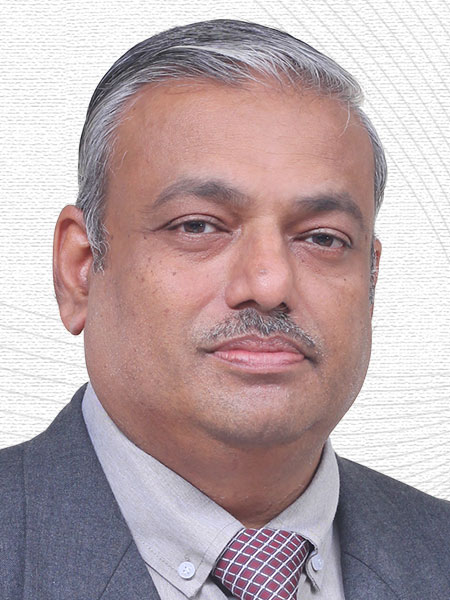
DATE: June 12-16, 2023 |
VENUE: 4th Floor Conference Hall, University of Finance and Economics, 1st khoroo, Bayanzurkh district, Ulaanbaatar, Mongolia |
ORGANIZERS: Colombo Plan Staff College (CPSC), Ministry of Education and Science (MEDS), and
Mongolian National Council for Education Accreditation (MNCEA) |
PARTICIPANTS' PROFILE: The participants of this program will be composed of TVET Institute Principals, Vice Principals, Administrators, Quality Section Directors / Deputy Directors, or NAC present Accreditors with 10 % Private Institution representatives |
Background
Quality development is today widely regarded as a key to the success of Technical and Vocational Education and Training (TVET) systems in the Asia-Pacific Region; it is crucial for building trust among TVET stakeholders, to improve the image of TVET, and to convince business and industry to take an active role in TVET systems and recruit TVET graduates. In the context of Asia-Pacific integration. Quality Assurance (QA) in TVET has, in recent years, become an important element in efforts to advance regional labour mobility and to build a more integrated regional labor market. For example, the ASEAN Work Plan on Education (2016-2020) identified the need to strengthen regional harmonization for the advancement of quality TVET by establishing regional quality assurance and recognition for TVET and/or “non-degree institutions'' as one of the priority areas for the improvement of TVET systems in Southeast Asia. Likewise, it asks for, among others, improved TVET quality through quality assurance, towards enhancement of access to quality initial and continuing TVET that is responsive to changing labour market demands. This trend and scenario is similar in the Asia-Pacific Region.
Quality Assurance (QA) is a key component of successful internalization, mechanism for building institutional reputation in a competitive local and global arena and necessary foundation for consumer protection (National Universities Commission, 2009). QA in TVET is the systematic management and assessment procedures adopted by an educational institution or system to monitor performance and to ensure achievement of quality outputs or improved quality (Majumdar et al., 2010). It includes internal and external mechanisms put in place by institutions and accreditation agencies respectively, to ensure standards in all the functions of the institutions.
TVET has played a key role in education as well as national development which has attracted different names such as Technical Education (TE), Vocational Training (VT), Vocational Education and Training (VTE), Technical and Vocational Education and Training, Occupational Education (OE), Apprenticeship Training (AT), and Career and Technical Education (CTE). TVET is a specialized education designed to empower learners through the development of their technical skills, human abilities, cognitive understanding, attitudes and work habits. In order to address the growing expectations of industries, continuous enrichment of the quality of TVET is a key priority in the region. The Goal 4 of the Sustainable Development Goals (SDGs) emphasizes Quality Education. Quality enhancement is one of the main objectives of the TVET system.
CPSC is an inter-governmental organization for the development of TVET in the Asia and the Pacific Region. The Asia Pacific Accreditation and Certification Commission (APACC) is a regional accreditation and certification body established through the CPSC Seoul Declaration 2004, with CPSC as the lead organization. It aims to accredit and certify the TVET institutions for human resources development through the standardization and harmonization of education and training systems which will facilitate the mobility of the workforce across national borders in Asia and the Pacific region. APACC Accreditation is designed to help TVET institutions boost their ongoing performance efforts for the benefit of their students. APACC insists on a relentless pursuit of excellence via a quality education system for itself and the institutions it accredits. This ethic of excellence ensures that institutions will find rich benefits from accreditation and that parents can confidently make informed decisions about their children’s education, knowing their child’s school is accredited. Accreditation matters because our students deserve the highest level of educational excellence possible.
Mongolia gives high regard to the quality of its education systems. This is very evident in their laws, specific on educational standards and quality. To acquire such high standards and exceptional quality of education in the TVET sector, it is necessary that all stakeholders are aware of quality assurance measures and mechanisms used by various accreditors, both local and international. With the right information come empowered and more involved TVET institutions, ready to meet and even exceed the expectations of the TVET accreditors. This would also guarantee, along with the compliance of the institutions, higher quality TVET graduates. This would help support the implementation of TVET Quality Assurance in order to achieve the overall goal of providing quality TVET where prosperity, competitiveness, and economic development of Mongolia expectedly lie ahead.
This program mainly aims to assist the Government of Mongolia with its initiatives by providing knowledge on the organized structure for maintaining Accreditation as Quality Assurance Mechanism based on quality systems standards on TVET Institutions that promotes the exchange and recognition of standards and criteria across Asia and the Pacific Region.
Objectives
At the end of the course, participants should be able to:
- Appreciate the need and importance of quality assurance in TVET;
- Identify best practices in TVET Quality Assurance Systems in CPSC member countries;
- Comprehend the need and importance of regional accreditation;
- Gain insights on APACC accreditation as a continuous improvement approach to organizational excellence in TVET; and
- Develop an action plan to prepare for APACC accreditation
Expected Outcome
The presentation and workshop activities are directed towards the formulation of a quality assurance via accreditation to meet the vision and mission statements, and strategic goals and objectives for the benefit of TVET Institutes for member countries, especially Mongolia. At the end of the training session, the participants should be able to craft the institutional quality assurance accreditation development plan which will be used as a basis for their future direction.
Key Components
- Quality Assurance and Quality Standard in TVET
- National Accreditation and Certification System, Practices in Mongolia
- APACC Accreditation
- Accreditation Innovative Approach in Technical Education in Mongolia
Main Components
To achieve the objectives set forth, the following strategies will be employed in a consultative nature:
Presentations on the following:
Special Lecture
- TVET Excellence in Today’s Competitive Environment
Theme Papers
- Theme Paper 1: Concept of Quality Assurance and Quality Standards in TVET
- Theme Paper 2: National Accreditation and Certification Systems and Practices in Mongolia
- Theme Paper 3: Benchmarking Quality Assurance System in TVET
- Theme Paper 4-7: Quality Assurance Accreditation through APACC( APACC Criterions)
- Theme Paper 8: Innovative Approaches for Stimulating Accreditation System in Technical Education
Exercises and workshops on the following:
Group Work Activities (GWA)
- GWA 1: SWOT Analysis
- GWA 2-5: Issues and Challenges in Accreditation
- GWA 6: Action Plan
Instructional Strategies
The program involves different learning methods such as:
- Theme paper presentations
- Group Work Activities
- Case Studies
- Web-Based Teaching and Learning System through On COURSE
- Action Planning
Participants' Profile
The participants are expected to be composed of the following:
- TVET Institute Principals, Vice Principals, Administrators, Quality Section Directors / Deputy Directors, or NAC present Accreditors with 10 % Private Institution representatives
- At least have 5-12 years of experience, or more, in handling or managing TVET institutes in quality management and assurance in their home countries
- Distinguished experts in TVET Quality assurance and accreditation.
Date and Venue
The five-day meeting and workshop shall be held from June 12-16, 2023 at the University of Finance and Economics’ Conference Hall, 1st khoroo, Bayanzurkh district, Ulaanbaatar, Mongolia
Facilities Requirements
To conduct the program smoothly, the following facilities are required:
- Laptop computers (preferably participants to bring their own laptop)
- Internet Connection (LAN/WAN)
- Audio and Video Equipment
- Multimedia Projector and Projection Screen
- Flipcharts and large papers (for brainstorming activities)
- Pens
Program Management and Resource Persons
|
|
|
|
|
|
|
|
|
|
|
|
|
|
|
|
|
|
Program Schedule


















